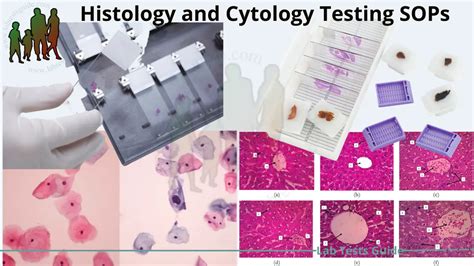Cytology prep technicians play a vital role in the medical field, working behind the scenes to ensure that medical professionals have the accurate information they need to diagnose and treat patients. Cytology, the study of cells, is a critical aspect of modern medicine, and cytology prep technicians are responsible for preparing and processing cell samples for examination. Here, we'll explore the five essential tasks of a cytology prep tech and delve into the importance of their work.
The first task of a cytology prep technician is to receive and process cell samples from various sources, including hospitals, clinics, and laboratories. These samples can come in many forms, including fine-needle aspirates, brushings, and smears. The cytology prep tech must carefully label and store each sample, ensuring that it is properly identified and tracked throughout the testing process.
Preparation and Processing of Cell Samples

Once the samples are received, the cytology prep tech must prepare and process them for examination. This involves a range of tasks, including centrifugation, fixation, and staining. The goal of these processes is to preserve the cells and make them suitable for microscopic examination. The cytology prep tech must follow strict protocols to ensure that the samples are handled correctly and that the results are accurate.
Cell Staining and Fixation Techniques
The cytology prep tech uses various staining and fixation techniques to highlight specific cell features and make them visible under a microscope. These techniques include the use of dyes, such as Papanicolaou stain, and fixatives, such as ethanol. The cytology prep tech must carefully select the most appropriate staining and fixation techniques for each sample, taking into account the type of cells present and the specific tests being performed.
Microscopic Examination and Slide Preparation

After the samples are prepared and processed, the cytology prep tech prepares slides for microscopic examination. This involves placing a small sample of cells onto a glass slide and staining them with dyes or other chemicals. The cytology prep tech must carefully prepare the slides, ensuring that the cells are evenly distributed and that the staining is consistent.
Microscopic Examination Techniques
The cytology prep tech uses specialized microscopic examination techniques to analyze the cell samples. These techniques include the use of brightfield and fluorescence microscopy, as well as the examination of cell morphology and staining patterns. The cytology prep tech must carefully examine the cells, looking for signs of abnormality or disease.
Quality Control and Assurance

The cytology prep tech is responsible for ensuring that the cell samples are handled and processed correctly, and that the results are accurate. This involves implementing quality control and assurance measures, such as testing the accuracy of staining and fixation techniques, and verifying the identity of the cells. The cytology prep tech must also maintain accurate records of the samples and test results.
Quality Assurance Protocols
The cytology prep tech follows established quality assurance protocols to ensure that the cell samples are handled and processed correctly. These protocols include the use of control samples, the verification of staining and fixation techniques, and the testing of equipment and reagents.
Documentation and Reporting

The cytology prep tech is responsible for documenting and reporting the results of the cell sample analysis. This involves creating detailed reports that describe the cell morphology, staining patterns, and any abnormal findings. The cytology prep tech must also maintain accurate records of the samples and test results.
Reporting Formats and Guidelines
The cytology prep tech follows established reporting formats and guidelines to ensure that the results are presented in a clear and concise manner. These formats and guidelines include the use of standardized terminology, the inclusion of relevant clinical information, and the verification of test results.
Maintenance and Troubleshooting

The cytology prep tech is responsible for maintaining the equipment and instruments used in the laboratory, as well as troubleshooting any problems that may arise. This involves performing routine maintenance tasks, such as cleaning and calibrating equipment, and identifying and resolving any technical issues.
Maintenance Schedules and Protocols
The cytology prep tech follows established maintenance schedules and protocols to ensure that the equipment and instruments are functioning correctly. These schedules and protocols include the use of routine maintenance tasks, the verification of equipment performance, and the testing of backup systems.
In conclusion, the five essential tasks of a cytology prep tech are critical to the accurate diagnosis and treatment of patients. These tasks include the reception and processing of cell samples, preparation and processing of cell samples, microscopic examination and slide preparation, quality control and assurance, and documentation and reporting. By following established protocols and guidelines, cytology prep technicians play a vital role in ensuring that medical professionals have the accurate information they need to diagnose and treat patients.





What is cytology?
+Cytology is the study of cells, including their structure, function, and behavior.
What is the role of a cytology prep tech?
+The role of a cytology prep tech is to prepare and process cell samples for examination, including receiving and processing samples, preparing slides, and performing quality control and assurance tasks.
What are the essential tasks of a cytology prep tech?
+The essential tasks of a cytology prep tech include receiving and processing cell samples, preparation and processing of cell samples, microscopic examination and slide preparation, quality control and assurance, and documentation and reporting.
